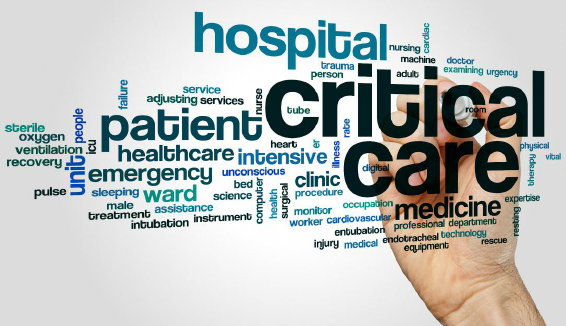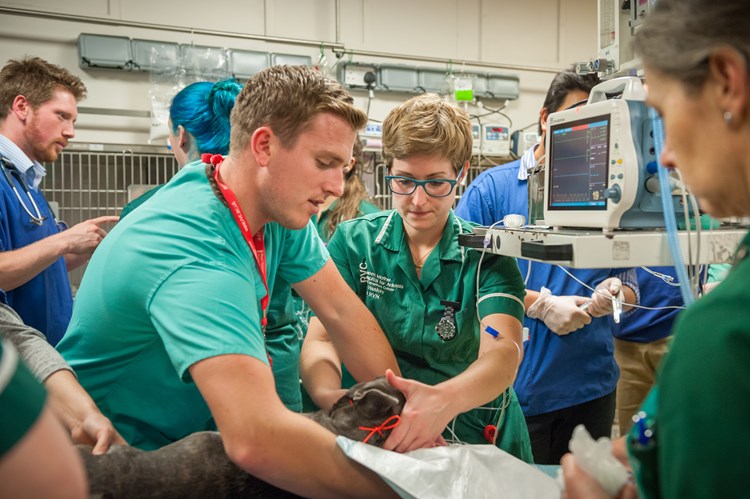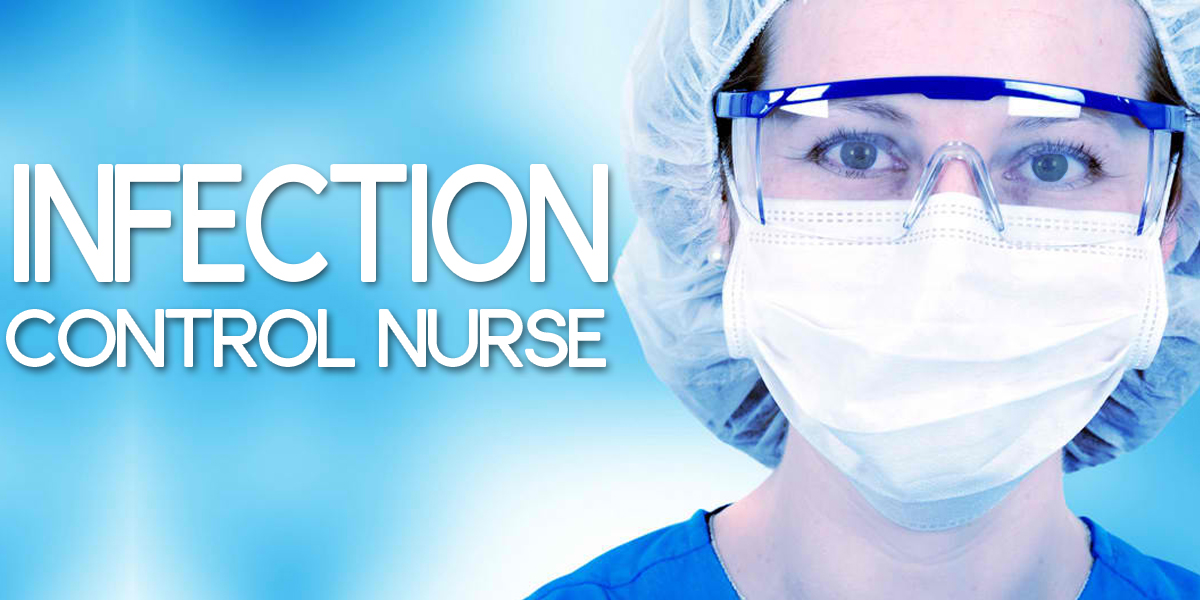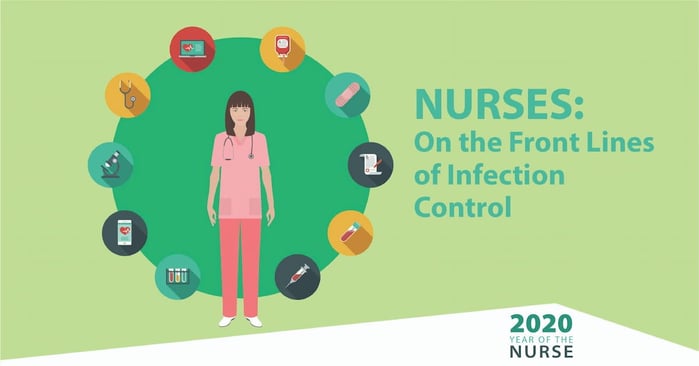Introduction

A critical care nurse treats patients with acute, even life-threatening injuries or medical issues. The critical care nurse has received specialized training that enables him or her to manage and monitor those patients who are the most seriously ill or injured. To do the job properly, a critical care nurse must have the ability to think and work quickly in stressful conditions and stay alert after many hours of intensive work.
An ICU nurse is a registered nurse (RN) working in the intensive care unit or critical care unit of a hospital and is part of the medical team who attend to patients with critical conditions. Registered nurses working in the ICU ward assist physicians, attend to patients, and provide support to the patient’s family. They also monitor life support equipment, administer IVs, give medication, and observe the patient’s vital signs and reactions to medical procedures.
What Is a Critical Care Nursing?
According to the American Association of Critical-Care Nurses (AACN), patients who are dangerously ill or suffering from life-threatening injuries that require advanced care can typically be found in these hospital departments:
Intensive care unit (ICU)
Emergency department
Step-down unit
Neonatal ICU
Pediatric ICU
Cardiac care units
Cardiac catheter labs
Telemetry units
Progressive units
Recovery rooms

The AACN goes on to report that critical care nurses comprise some 37 percent of the total number of nurses who work in hospitals. Typical work settings also include patients’ personal residences, outpatient surgery centers, private physicians’ offices, managed care centers, and nursing schools. In any employment setting, the critical care nurse must have the ability to perform complex patient assessments, implement intensive interventions and therapies, and monitor patients, all while remaining calm in desperate, sometimes life-threatening situations. Because a critically ill or injured patient’s condition can change quickly without warning, the critical care nurse must be capable of immediately changing a current care plan and providing emergency care as necessary.
Besides direct, hands-on care, the critical care nurse also performs the important role of acting as the patient’s advocate. In this position, advocacy means supporting and respecting the basic rights, values, and beliefs of a patient who is critically ill or injured. Performing as the patient’s representative, a critical care nurse finds additional resources for patients outside of the immediate care setting to assist in their recovery. Advocacy in this role, according to the AACN, means the critical care nurse is expected to:
Respect the rights of the patient or his or her designated surrogate to make independent health care decisions, even when he or she disagrees with those decisions.
Act as an intermediary in matters concerning the patient, his or her family, and other staff involved in the patient’s direct care or members of the care team.
Intervene when other health care professionals or the family is not acting in the patient’s best interests.
Continually monitor the quality of care provided to the patient.
Assist the patient in obtaining necessary care when the critical care facility is unable to provide it.
Act as a champion for patients who are unable to speak for themselves when the situation demands it.
Educate and support the person acting as the patient’s spokesperson.
Transfer care to other health care personnel as situations demand.
Represent the patient’s wishes to other medical staff.
Working as a Critical Care Nurse: Typical Duties & Responsibilities
The critical care nurse works alongside other healthcare professionals, including doctors, surgeons, nurse practitioners, clinical nurse specialists, nurse researchers, nurse educators, and health care case managers. As a direct result of pressure applied by managed care insurance organizations, today’s hospitals have been forced to reduce costs, increasing the demand for additional critical care nurses in outpatient settings. When the nursing shortage hit, the specialty areas of nursing, including critical care, suffered more than nurses in more general positions, which makes skilled, experienced critical care nurses especially valuable in today’s job market.

While people have always suffered serious illness or injuries, the concept of one-on-one care from a nurse with specialty training is relatively new. In fact, the first ICU department was established in an American hospital in the 1950s. The critical care nurse position as we know it today arose in this environment. While the original role of the critical care nurse was in hospital ICU departments, it has expanded greatly over the past six decades.
In addition to acting as a patient advocate, a critical care nurse has these specific duties, among others:
Cleaning and bandaging patient wounds.
Tracking life support equipment such as heart monitors.
Immediately responding to changes in the patient’s condition.
Evaluating vital signs such as heart rate, respiratory rate, and body temperature.
Administering medications through an intravenous tube, gastric tube, orally, by injection, or other methods, as determined by the patient’s condition.
Infusing blood products and monitoring patients for reactions.
Caring for the patient’s body immediately after death and arranging for transportation to a hospital, burial facility, or morgue.
Identifying patient needs according to age and level of consciousness and creating a care plan to meet them.
Diagnosing patient illnesses and injuries.
The critical care nurse works with patients and families who are experiencing extreme stress. An empathetic, compassionate nature and the ability to remain calm in life or death situations are necessary to perform effectively in this position. Additionally, the critical care nurse must learn not to take patient and family behaviors as personal attacks; instead, he or she should remain calm and dispassionate in all situations.
The nurse must have the ability to make tough decisions, think quickly and calmly, and maintain a caring but objective attitude.
An ICU nurse is responsible for closely observing patients, noting specific procedures and prescribed medication for each case; assisting doctors in providing physical assessments and administering treatments.
Assessing a patient’s condition and planning and implementing patient care plans.
Monitoring vital signs and ensuring the proper functions of feeding tubes, ventilators, catheters and other life support equipment's.
Administering intravenous fluids and medications.
Critical care nurses may also care for pre- and post-operative patients.
A critical care nurse may also care for tracheotomy, colostomy, etc patients.
Responding to life-saving situations, using nursing standards and protocols for treatment.
Attending to the patient’s overall needs, such as feeding, bathing and grooming, dressing replacement, medication intake, and comfort.
An ICU nurse work efficiently with other practical nurses and nursing assistants in the ICU ward and be able to provide clear directions and guidance for procedures and routines.
She should also be able to provide support and education to the patient’s family, answering questions and giving vital instructions on how to care for the patient.
Becoming a Critical Care Nurse
A critical care nurse provides specialized care to patients in the intensive care units of a hospital that treat the most severely ill or injured patients, caring for the daily needs of those who are the most vulnerable. To perform effectively in this position, critical care professionals require specialized training.
While education and training are essential for this type of nursing career, it’s equally important that the critical care nurse has the right temperament. He or she must be cool-headed and confident, with the ability to endure physical and emotional stress. Indeed, the critical nurse also must have the ability to make vital decisions while under stress. Critical care nurses, also known as “ICU nurses,” must also possess excellent communication skills and be able to work with patients of all ages from a variety of backgrounds and cultures.

Education and training requirement
An ICU nurse must be a registered nurse. Educational requirements may depend on the healthcare facility, its size, and location. Entry-level requirements for intensive care unit nursing include nursing experience and/or graduate internship. Certification as a critical care nurse is required by some institutions, and can be obtained by passing a national licensing exam.
Get Certified as a Critical Care Nurse by the American Association of Critical Care Nurses (AACN)
The CCRN certification from the AACN Certification Corporation establishes a baseline of knowledge for nursing critically ill or injured patients. Nurses who want to advance their career, demonstrate their knowledge, and improve their skills can obtain this certification.
Knowledge and skill requirement
To become successful in ICU nursing, a registered nurse must be able to handle critical and highly stressful situations with efficiency and composure.
They must be able to react decisively and intelligently in emergencies, perform and assist in medical procedures with accuracy, expertly operate life support machines and other medical equipment's, and carefully look after patients with severe medical conditions.
Employers usually require that their critical care nursing staff maintain continuing education to retain their position. Continuing education helps nurses perform effectively in the workplace, stay up-to-date with the most current teachings in the field, and master the latest technology. Continuing education also helps nurses perform as leaders in the workplace and raises the bar to ensure excellent patient care at each facility.
Conclusion
ICU nurses often face a harsh reality. Many will not be able to restore their patients to good health; in fact, the patient may die while in the ICU unit. Over the course of their career, critical care nurses may experience patient death many times, which can take a toll on the nurse’s own mental health. This type of emotional stress can be draining and heartbreaking, but the right person for the job may find working as a critical care nurse a very rewarding career. This nurse often finds fulfillment in playing an important role in the lives of the patients with the greatest needs.

Hope this article will help all the medical professionals reference taken from Wikipedia.
Written By:
Shivangi Mishra
Community Health Officer
U.P State Govt.of India
District Amroha (U.P)





